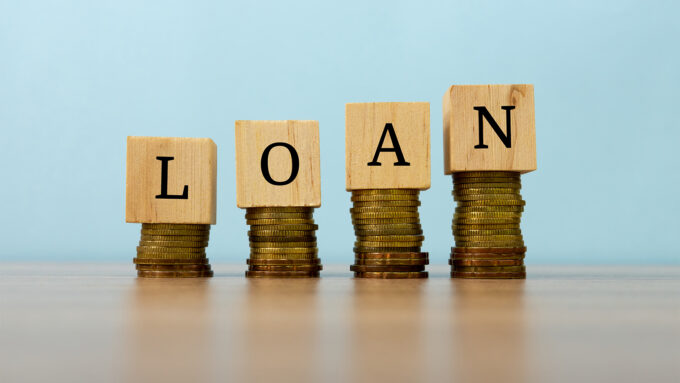Are you having second thoughts about renting or buying a home? Not quite sure what is the smart option and how can you manage buying a home? Is it a smart solution, or not?
Well, there is no universal answer, because this is closely related to your lifestyle. We’ll give you three examples, pay attention to the numbers in them, to see why.
John is renting a home, let’s say that he pays the rent for each month 2 400 $, and saves 1 600 $. That’s a total of 4 000 $ a month. Within thirty years, with a 2 % interest, he manages to save 780 000 $.
Sarah, on the other hand, took a 100 000 $ bank loan, with an interest of 5 % per year, for 30 years. Her monthly loan installment is 4 000 $. After 30 years, she returned the whole loan to the bank and as a result has a home in her ownership, that she paid 100 000 $, 30 years ago.
Mike chose a completely different way. He decided to go for a down payment. He found a good deal while browsing on the internet. Lucky for him, a vast offer available on the Rent to own page was quite inspiring (visit their website and see for yourself), resulting in him finding a flat for 100 000 $. He instantly knew this is the place he wants to own, and settled for a “rent to own” deal. A small piece of his monthly rent went to his “down payment basket”, and he managed to save 20 000 $, which is exactly 20% of the whole sum. He goes to search for a loan, and instead of borrowing the whole sum, he just borrowed 80 000 $. Something he’ll be able to pay off with a mortgage in a period of 15 years, or so.

So, who was smarter – John, Sarah, or Mike? It’s hard to say because people are different. Those like Sarah like to have a piece of their own property and get it done in the start by taking a bank loan and starting a long-term relationship with a bank. John is the kind of person who doesn’t like attachments, so he chose to save money instead of buying a permanent place. Therefore, he chooses to pay the rent and save money. Mike, obviously being the oldest one in the story, chose to save via down payment, which made him a combination of the other two. He paid rent and saved money while doing so, but ended up getting a smaller loan from a bank, and entering what is called in this case a short-term relationship with it (unlike Sarah).
Lifestyle and financial possibilities of an individual are different and tend to change according to a period of life (going for university studies – moving to a bigger city, getting married), occasions and needs (birth of a child) or according to the place of residence. There are some countries in the world where people don’t have so many options or options such as Mike’s. Therefore, they either rent for life or get a bank loan.
But we won’t talk about those people, in this guide we want to explain further how you can do what Mike did, take a rent credit since it is obviously the shortest way towards owning your home. To learn more about money lenders and credits visit Galaxy Credit.
What is a rent credit?

To put it in simple words, it’s the smartest way for becoming a homeowner. Ideal for those who do not have the initial sum of money for a down payment, needed for purchasing a home. Renting is not an option, because it’s only delaying what is inevitable – that you have to settle down at one point, and it’s not giving you any progress towards owning a real-estate.
It’s a possibility to tie yourself to a landlord, or a certain piece of property with a rent-to-own contract and start saving money for a down payment, once you decide to buy it.
How does it work?

Well, first, it’s important to find a suitable home, you can imagine yourself living in for a longer period of time. The home needs to have the option of rent-to-buy, which is why the link we shared in the first part of the text is useful. The second thing to do is to make an agreement with the landlord, about the details regarding the contract referring to the percentage for the down payment. You can expect your monthly rent to be slightly higher, because of the percentage that will go to the down payment fund.
If you have been renting in the past and reported your rental activities to the credit bureau, this will come in handy now. It proves you are a desirable renter because you have been paying everything on time, therefore, building a positive credit history. Because of this good reputation, you’ll be able to make a good agreement with the landlord.
Typically, there are two types of contracts or agreements you can expect to derive from your agreement:
1. Lease-Option

Upon the signing of the contract, you pay an option fee. An option fee is guaranteeing you you’ll have the option to buy the home, upon the contract expiration. It’s sort of a guarantee, he won’t have second thoughts on selling it to you. You, on the other hand, can change your mind in the end, but it will have consequences. You won’t be able to retrieve the fee you paid and your credit history will suffer.
2. Lease-Purchase

It’s more or less the same as the first option, with one difference – you agree on the price before the signing of the agreement. This way, you know what to expect. Or another option is that you set a date when the price will be known. Your lease payment starts the moment you sign the contract, of course.
A great thing about these credits is that they do provide more people with an opportunity to settle down. So, keep your credit reputation neat, and work your way towards the final settlement.









